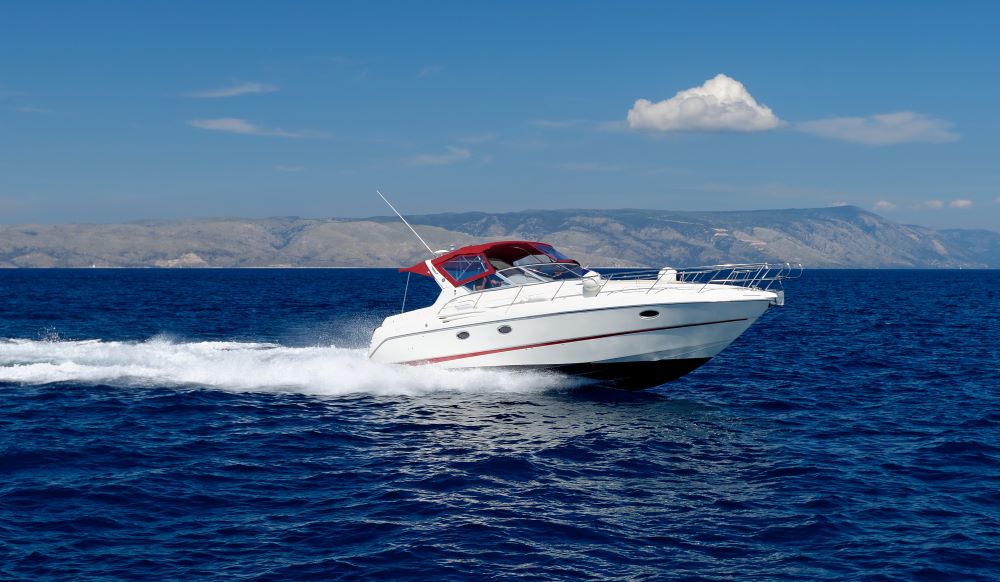
How to Choose an Electric Boat Motor
Electric boat motors are becoming increasingly popular options for pleasure crafts due to their many advantages. However, there are many varieties within that category to choose from, so the selection process is far from simple! In this article, we present 4 tips to help you choose the best electric boat motor for your needs.
The advantages of electric boat motors
While they have their share of drawbacks, electric boat motors have many advantages that can truly make a difference on the water.
Eco-friendly
The first and most significant advantage of electric boat motors is that they’re better for the environment than combustion engines. Electric boat motors don’t release any harmful substances into the atmosphere or the water. Furthermore, access to certain waterways is prohibited for boats with combustion engines, so by opting for an electric boat motor, you’ll have access to protected areas you would not be allowed to use otherwise.
Quiet
Another reason to opt for an electric boat motor over a combustion engine is peace and quiet! Even when running at full tilt, electric motors make almost no noise. That means that your boat will be less likely to scare away fish and other marine life, which is good news for those who like fishing, and you can enjoy the tranquility of being on the water without noise pollution.
Easy to move and use
Electric boat motors are easy to use and maneuver, whether you’re an experienced boater or a beginner. You’ll be very satisfied with the way they handle!
Furthermore, electric motors are often lighter than combustion engines of equal power. Their lightness makes them easier to store and transport than their combustion-powered counterparts.
Criteria to consider when choosing an electric boat motor
If the many advantages of electric boat motors have convinced you to buy one, the next step is to choose one that suits your needs. Here are the main criteria to consider when making your choice!
Battery life
This may go without saying, but it’s good to remember that the battery life on your electric motor depends on how you use it. You’ll have much more battery life boating on a calm lake than on rough seas.
By taking our boat safety course and boating exam online, you’ll learn to use your electric motor in a way that maximizes battery life.
The types of batteries available on the market all have their own advantages and disadvantages (often pricing). It’s important to assess your needs carefully before purchasing your electric boat motor.
Power
The power of an electric boat motor may sometimes be expressed in horsepower (HP), but more often, you’ll see it measured in kilowatt hours and pounds (lbs).
The amount of power you need in a motor depends on several factors, including the size and weight of your vessel and your boating habits.
Although electric motors tend to be slower than combustion engines of equal power, most of the models available on the market will still be perfectly suitable.
Keep in mind that motor power is also a safety consideration for the people on your boat. The more power your electric motor has, the easier it will be to get out of tricky situations.
Wear rate
Wear rate is another factor to consider when purchasing an electric boat motor.
The efficiency of your motor depends on how you use and maintain it. Don’t overestimate the motor’s ability to propel you forward. Both running a small motor at too high a speed and running a large motor at too low a speed can negatively affect wear rate.
Make sure to choose a motor that will work well for your boat rather than basing your choice on aesthetics or performance considerations.
It’s also important to maintain your electric boat motor regularly in order to prolong its life.
The type of water you want to boat on
Finally, when purchasing an electric motor, it’s important to consider the type of water you want to boat on.
Motors intended for ocean use won’t have the same components as those made for lakes and rivers. The type of water also affects the power required—boats on the ocean need a more powerful motor in order to be able to adapt to adverse weather conditions.
Find out more about boats and boating equipment from the National Boating Safety School!
Whether you want to boat on calm lakes or rough seas, it’s important to select an electric motor that will suit your intended use.
If you haven’t already, register for our online boating safety course in order to boat legally on Canadian waters and enjoy the wonders nature has to offer!
If you want to find out more about boating safety and pleasure boating, check out the National Boating Safety School blog.
Have more questions or want to talk to a member of our team? Feel free to contact us! We will be happy to answer your queries.

